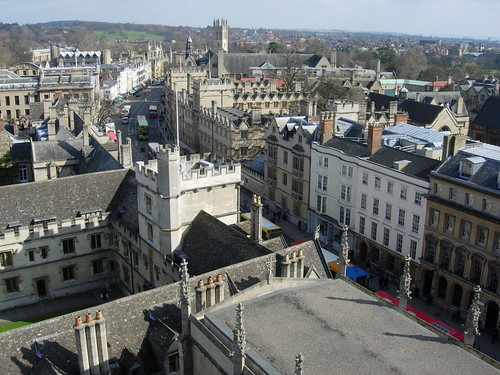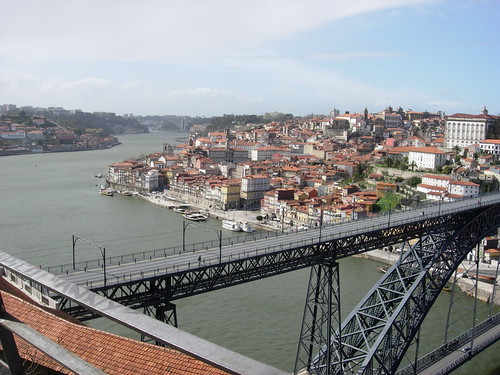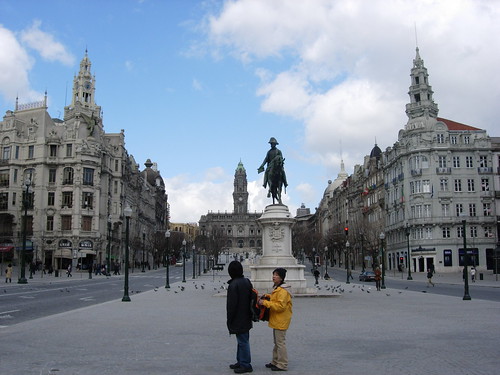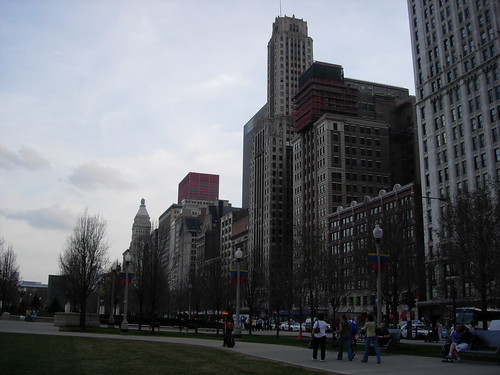The Dream of Being Idle
The 59th Street Bridge Song (Feelin' Groovy)by Simon & Garfunkel
Slow down, you move too fast
You've got to make the morning last
Just kickin' down the cobble stones
Looking for fun and feelin' groovy!
Hello, lamp post, whatcha knowing?
I've come to watch your flowers growing
Ain't ya got no rhymes for me?
Doot-in' doo-doo, feelin' groovy!
Got no deeds to do, no promises to keep
I'm dappled and drowsy and ready to sleep
Let the morning time drop all its petals on me
Life, I love you, all is groovy!
“Music is the effort we make to explain to ourselves how our brains work.” Or so the esteemed Lewis Thomson claimed. The 59th Street Bridge Song would appear to disagree with this, for it does not bother with explanations at all but sends a very clear message that seems obvious from its first line. The message ostensibly is this: “Slow down” and enjoy life, played to an easy, whimsical and calming tune. The later lines reiterate this, describing a dream-like state of idleness and well-being and ending with a benevolent “life I love you, always groovy”. These slogans from the swinging sixties sound perfectly reasonable. Yet what does ‘slowing down’ and ‘making the moment last’ really mean? We don’t need to be told to enjoy life and pursue happiness. The real question is how do we go about doing so? According to the 59th Street Bridge Song, the answer is by idling.
It would seem that, according to popular culture today, the exact opposite is true. According to Mario Andretti, a renowned race driver, “it's the determination and commitment to an unrelenting pursuit of your goal that will enable you to attain the success you seek”. John Lubbock is harsher, saying that “The idle man does not know what it is to enjoy rest, for he has not earned it.” Once admirably idle activities such as bantering, admiring scenery and staring at clouds have been labeled as “unproductive”. We have relegated them to the outhouses of our minds, and have denounced them as foolishness and idiocy. This is the legacy of the protestant work ethic. That every day of our life must wrung dry for every drop of efficiency and that idleness, as a rule, is at best useless, and at worse a dangerous sign of mental degeneracy. Idling is a thing to warn your child against, to shun and to repress.
Yet, despite conventional wisdom, and in defiance of ancient proverbs, there is a certain romanticism that has been attached to idleness. Although we achieve success through hard work, the reward we receive and indeed were striving for in the first place is idleness. This is similar to the dream of George and Lennie from John Steinbeck’s “Of Mice and Men”. They work at ranches in the hope that eventually they will own their own farm where they will spend their days tending rabbits and “live offa the fatta the land”. This is the myth of the American Dream, that if you put in enough effort, and have enough determination, you can earn a big pile of cash and retire young to enjoy life and be idle. Our symbols of success and enjoyment: week-long cruises in the pacific, golfing trips in Ireland, sun-bathing in Hawaii and early retirement. We have idealized idleness as the ultimate reward of our efforts.
Yet this reward never really materializes. How many aging retirees really do spend their ‘Golden years’ in flower shirts on the beaches of California? How many multi-millionaire CEOs really make a fortune and then quit and head off to Honolulu for a martini? Witness the example of business legends like Carl Icahn and Warren Buffet who are still actively involved with their businesses in their seventies. Charles Simmons warns us that “it is only the constant exertion and working of our sensitive, intellectual, moral, and physical machinery that keep us from rusting, and so becoming useless.” Thus, not only is it unthinkable to pursue idleness without first becoming a success, even after we have succeeded idleness is beyond our grasp. For sure, there are the privileged and pampered few who do indeed enjoy the fruits of (often someone else’s) hard labor. Yet they are the exception that proves the rule. The song of idleness has been drowned out by the overwhelming yawn of politically correct society. We have traded irreverent freedom for the dogmatic and all-consuming yoke of Materialism.
Thus, idleness has been divorced from reality. We strive to succeed in order to be idle and in order to be successful, we must cast aside idleness. After achieving success however, we raise the bar even higher, and thus still cannot be idle. To quote Mark Slouka, “Fish gotta swim and birds gotta fly, you gotta work like a dog ‘til you die”. There is no room for idleness in reality; the only place left for it is our mind.
This brings us to the crux of this essay: if idleness cannot survive in reality, it must take refuge in our dreams. These dreams express themselves in every medium known to man. Our movies, our fiction, our artwork, our poetry, all of them contain slivers of the idle spirit, cracks in the cave of capitalism. Books like “On the Road” and music from the Beatles all allow us small snatches of idleness and we treasure and revere these snatches. These patches numb us to the price of our eternal bustle. They pacify our hidden hopes and dreams and let us escape from the ‘big and nasty world’. They are our gateway into the idyllic matrix of idleness that exists only in our imagination. We know that superheroes don’t exist, we know that you need more than love to survive, and we know that life is not “always groovy”, but we indulge in the song, and because of that fleeting moment, can carry on living our lives. We attempt to capture the spirit of idleness and portray it, and these counterfeits give us the sustenance we need to maintain our lives without the respite of idleness.
Lewis Thomson was indeed mistaken when he said that “music is the effort we make to explain to ourselves how our brains work.” Similarly, Simon and Garfunkel’s 59th Street Bridge Song is not an advertisement for the wonders of idleness. Music is not explanation or an argument; it is an indicator, and a symbol of our hidden dreams and yearnings. The real message behind the song is that “we want to be idle”. It’s a pity that idling can only be a dream...







